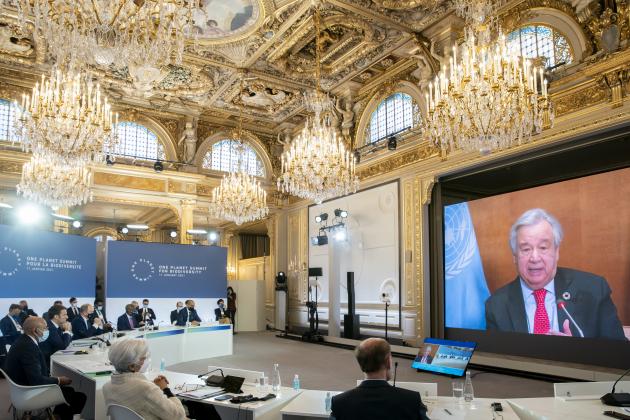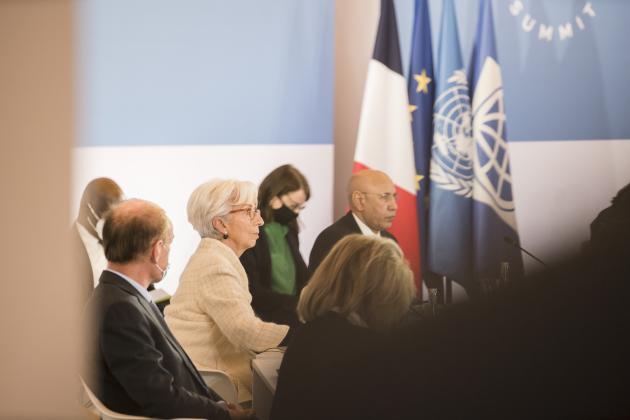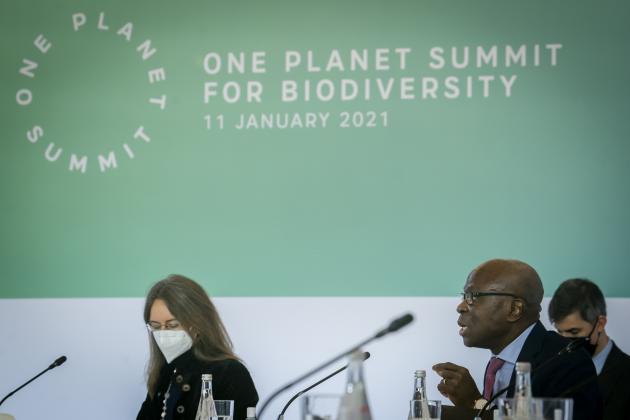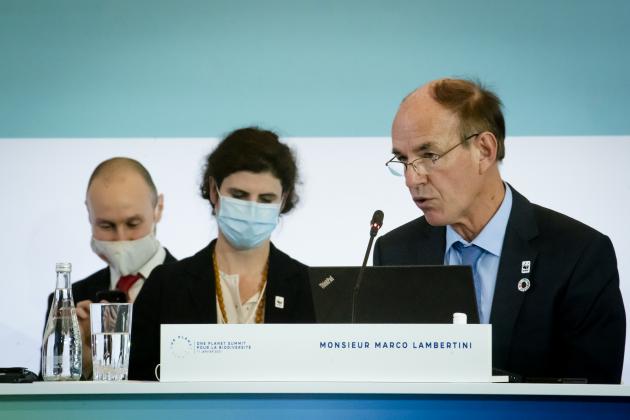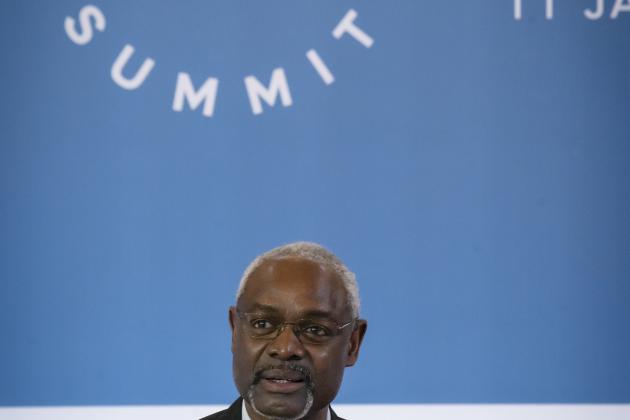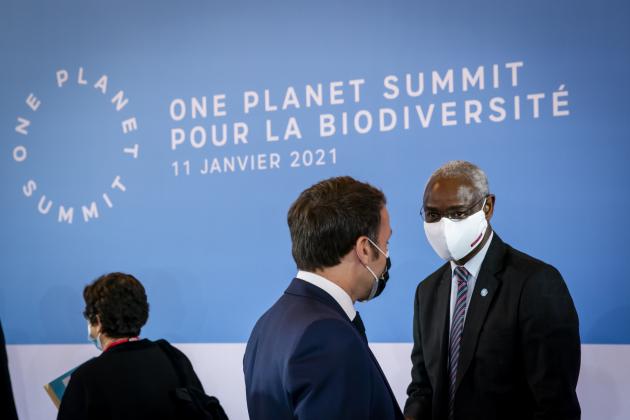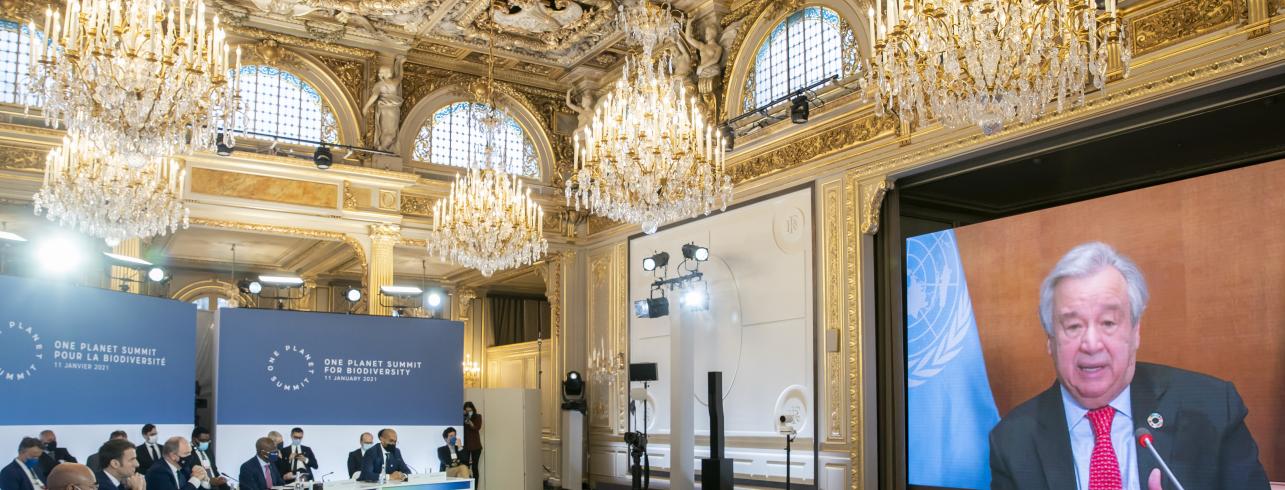
Commitments to act in favor of biodiversity
1. Protecting terrestrial and marine ecosystems
France and Costa Rica launched the High Ambition Coalition for Nature and People, which aims to create the conditions for the adoption of an ambitious target for nature protection by the Convention on Biological Diversity at the end of the year. This mobilization has led to the rallying of 52 States to this coalition, which are committed to working towards the protection of 30% of land and marine areas by 2030.
A new coalition, Mediterranean Sea Exemplary in 2030, was launched today by Spain, France and the Principality of Monaco. It is built around 4 commitments: (1) developing a network of protected areas; (2) ending overfishing; (3) fighting marine pollution and ending single-use plastic; (4) greening maritime transport. This coalition will continue its efforts to mobilize other states around the Mediterranean, but also regional and local actors, civil society and the private sector.
Germany confirmed the launch of the Legacy Landscapes Fund, a new global public-private coalition aiming to provide sustainable funding for the most valuable natural landscapes and their protected areas in developing countries and emerging economies by public and private donors. Established a few months ago by Germany in cooperation with various partners, including France, it will support long-term, local-level collaborations between protected area authorities, experienced NGOs and indigenous and local communities.
2. Promoting agro-ecology
Recognizing that agro-ecology can preserve biodiversity while meeting sustainable development and job creation objectives, this One Planet Summit has decided to make it an important element of international commitment. This issue is particularly acute in Africa, where the effects of climate change, land degradation and biodiversity loss combine to threaten the food security of many countries.
In this context, a program called the Great Green Wall Accelerator (GGW Accelerator) has been set up. This multi-stakeholder initiative aims to catalyze the financial efforts of all donors. It aims to give new impetus to this ambitious African initiative, launched in the 1980s, to green the Sahel. The various partners in the initiative have committed to mobilizing nearly 14 billion euros (16.85 billion USD) in international funding in the 11 countries concerned by 2025. 14.3 billion dollars are already programmed. The President of the European Commission has announced that she could mobilize more than 2.5 billion euros to contribute to this, in her programming in preparation. More than a hundred companies, grouped around the IAM AFRICA (International Agroecological Movement for Africa) charter, have also committed to contributing to the implementation of agro-ecological transition objectives in the GMA countries. A secretariat responsible for monitoring these commitments has been set up within the United Nations Convention to Combat Desertification.
3. Mobilizing funding for biodiversity
At the instigation of the Prince of Wales, the Natural Capital Investment Alliance was announced, in which HSBC Pollination Climate Asset Management, Lombard Odier and Mirova already participate. It brings together financial players wishing to increase their investments in the restoration of biodiversity. Its goal is to mobilize $10 billion for nature by 2022.
OPS has laid the groundwork for a Coalition for the Convergence of Climate and Biodiversity Finance, which aims to build more synergies between climate action and biosphere conservation. Its members will work to increase the share of their climate finance that also benefits biodiversity. This principle was supported at PAHO by Canada, France, Norway and the United Kingdom.
OPS was the occasion to give political impetus, notably by Canada, France and the United Kingdom, to the Taskforce on Nature-related Financial Disclosure (TNFD). This initiative, supported by public and private actors, including some 50 leading financial institutions, will develop a framework for measuring the risks, impacts and benefits of economic activities with regard to biodiversity - similar to the TCFD on climate.
Finally, Canada announced that it will contribute up to CAD$55 million (€35.3 million) to the Land Degradation Neutrality fund (LDN), to support sustainable land management and restoration, particularly in Africa. France has announced that it will also join the initiative. With this announcement, which will catalyze additional private sector investment, the LDN fund has the potential to achieve the goals set at its launch at the One Planet Summit in December 2017.
4. Protecting forests, species and human health
France has launched the PREZODE (PREventing ZOonotic Diseases Emergence) initiative, which will set up unprecedented cooperation on an international scale between research actors and health vigilance networks, with the support of the FAO in particular, for the prevention of new pandemics from animal reservoirs. It has been initiated in consultation with many European research actors and already mobilizes more than 400 researchers and experts in human, animal and environmental health at the international level.
The One Planet Summit was the occasion for a progress report on the Alliance for the preservation of tropical forests, announced at the G7 in 2019. Germany and the Democratic Republic of Congo announced their membership in the alliance.




